Digital Nomad Interview – Gemma Clarke – Blogger and Yoga Teacher

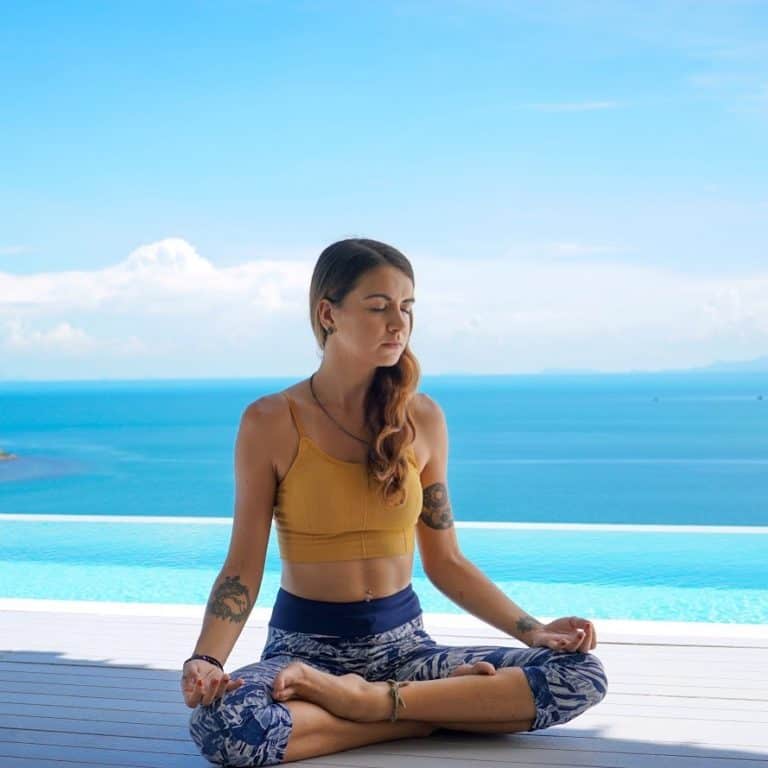
Gemma Clarke - Digital Nomad and Yoga Teacher
Gemma Clarke is originally from the UK but has been living and working around the world since 2016. At age 23, she escaped the corporate city life she found herself trapped in and booked a one-way ticket to Australia. After two years living and working in Australia, Gemma traveled the globe. She found herself in Thailand, where she followed her dream and trained to become a yoga teacher. After a brief spell living back in the UK, Gemma knew this was no longer the life for her. She packed up her belongings and moved to Thailand long-term, where she now lives as a digital nomad.
RTL: What made you become a digital nomad?
I caught the travel bug in my early twenties and started solo traveling. The pivotal point for me was when I moved to Australia and started a new life there. From that experience, I knew I could never go back to the life I had prior.
In fact, after a few years of traveling, I did try to make it work living back in the UK. Despite freelancing in my chosen profession, I knew I had to transition my work to be location-dependent. I also knew I couldn’t hack another British winter!
RTL: What kind of remote work do you do that enables you to work from anywhere and see the world?
When I lived in the UK, I was teaching yoga in person. Then, when I moved to Thailand, I began teaching at yoga centers and resorts. Teaching yoga is a great travel job because many retreat centers welcome traveling yoga teachers to stay and work.
Because of COVID-19 restrictions, I now mainly teach yoga online to private clients and create yoga videos for companies. I am also a content writer, and I use my experience to write for travel and digital nomad blogs (like this one!).
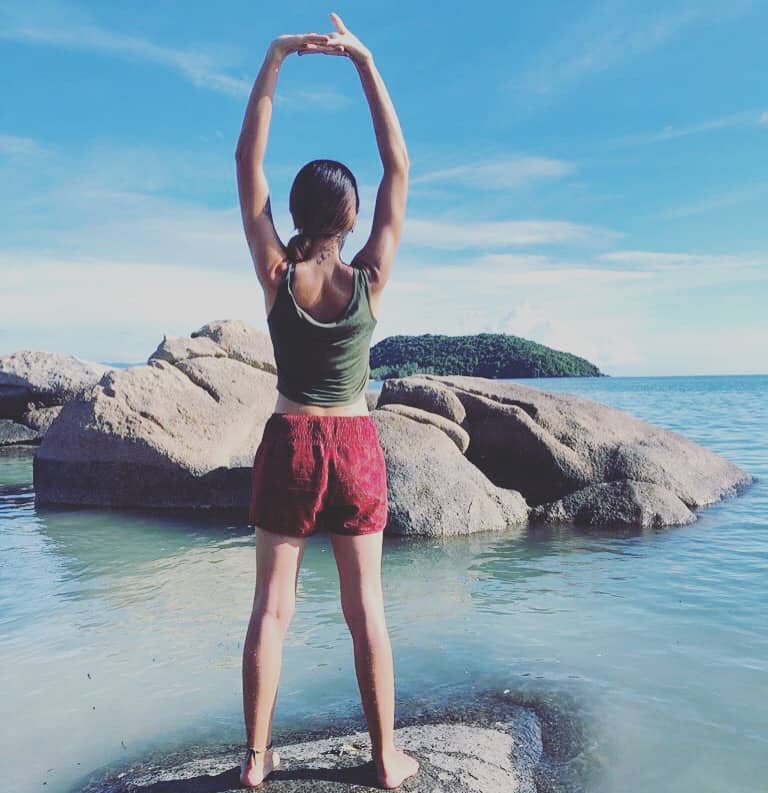
RTL: Our readers probably want to know how you go about finding work and clients. Can you tell us a bit more about this process?
For both teaching yoga and content writing, I have found most of my opportunities through Facebook groups. I would recommend joining groups explicitly aimed at your profession. There are also many great digital nomad groups where you can find various remote jobs.
I also believe the best way to find work is to be proactive. If I’m looking to gain more writing clients, I’ll research websites in my field and reach out to the blogs that appeal to me most. Moreover, when I’ve looked for travel yoga jobs in the past, I have researched yoga retreat centers in the location I want to go to and then directly emailed them.
Other social media channels can be a great place to find clients, too, depending on your industry. For example, I have found private yoga clients through LinkedIn. Again, it comes down to being proactive and reaching out to people, but not in a salesy way!
RTL: What can you tell us about your transition? Was it voluntarily and calculated, or was it a spontaneous decision based on circumstances?
My decision to move overseas was pre-planned; however, my transition from face-to-face jobs to remote work was actually due to COVID-19. When Thailand went into lockdown, like many people, I lost some work. I already wanted to transition at least some of my work online to have more freedom. However, the pandemic certainly pushed me in this direction and helped me fully transition to digital nomad life
"Make sure you have either some savings or some remote work before you take the leap. Even if you live in a cheap country with a low cost of living, you can quickly go broke without having one of these."
Gemma Clarke Tweet
RTL: How else did COVID-19 affect your traveling lifestyle, and how did you navigate the lockdowns?
COVID-19 made me reflect on my travel lifestyle and question what I needed the most. I came to discover that the frequent moving from one place to another was starting to take its toll, and what I really wanted was to base myself somewhere for a while. This is another positive that came out of the pandemic for me as it forced me to slow down my travel pace.
I spent the first lockdown on the island of Koh Phangan, which felt like being in a bubble from the rest of the world. Other than not being able to teach yoga, the lockdown didn’t affect me too much. I practiced yoga in my jungle home, went for lots of beach walks, and rescued a street kitten!
Towards the end of 2020, I moved to Phuket (another area of Thailand). Here I decided to stay put for at least a year, which is a long time for me to stay in one place! So far, this plan is proving successful, and now I even plan to stay for longer.
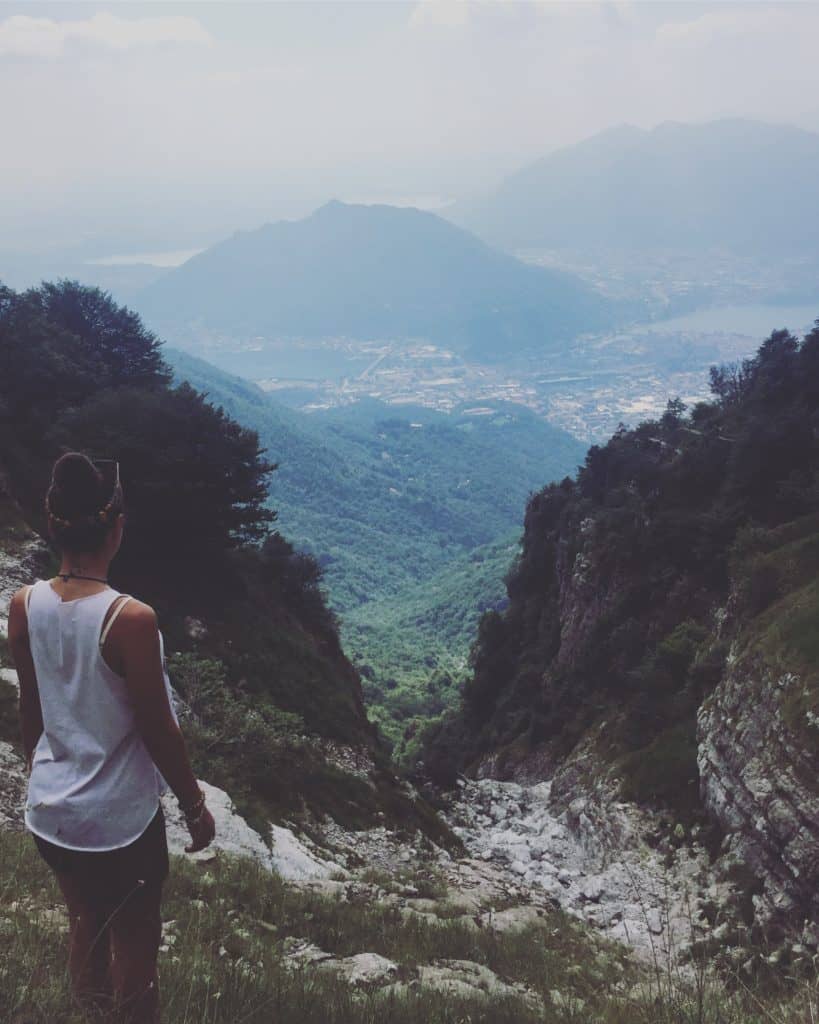
RTL: We always love to give our readers practical advice on how to start a digital nomad lifestyle. What would be your top 3 tips for them?
- First, decide the type of remote work you a) want to do and b) have the skills to do. If you’re not sure, reflect on what you enjoy doing, what you’re good at, and what previous experience you have. For example, there are many VA (virtual assistant) and remote customer support roles out there. For example, suppose you have previous customer service experience in an office. In that case, these could be good jobs to kick start your digital nomad lifestyle.
- Make sure you have either some savings or some remote work before you take the leap. Even if you live in a cheap country with a low cost of living, you can quickly go broke without having one of these.
- Don’t overthink things; be bold and make the decision. Our minds are great at talking ourselves out of the things we are scared of, and if we procrastinate over something for too long, our mind wins. So many people have told me they want to move away and work remotely. The only ones that made it happen are those who made a firm decision, declared it to themselves and others, and then did what was necessary to make it a reality.
RTL: What’s your favourite remote working setup?
In general, I prefer to work from home over coffee shops and co-working spaces (I’m a secret introvert!) I’m lucky enough to have a separate office space in my house, a comfy chair, and a Nespresso coffee machine to keep me fueled.
That being said, it does feel good to have a change of environment sometimes. Whenever I feel the need, I’ll spend the afternoon in a cozy coffee shop where I can indulge in a couple of sweet treats!
RTL: You’ve traveled quite a bit, especially in South East Asia. What is your favourite location that you would recommend to digital nomads to live in for a while, and why?
If you love the beach life and tropical climate, I’d definitely recommend living on an island in Thailand for at least a few months. Many islands here, such as Koh Phangan and Koh Tao, now have a buzzing digital nomad culture. Therefore, it’s so easy to meet like-minded people.
You’ll also have the ocean on your doorstep, and there are some fabulous beachside restaurants and co-working spaces where you can work. The only downfall is that islands in South East Asia are generally more expensive than the mainland, but it’s still an experience every remote worker should have at least once.
RTL: Thanks a lot for sharing these useful learnings with our readers. How can people get in touch and collaborate with you?
I’m most active on Instagram. You can find me at @gemmaclarkeyoga
You can also connect with me on LinkedIn: http://www.linkedin.com/in/gemmaclarkeyoga
Feel free to reach out to me via email too: [email protected]
Get our best tips FOR FREE and learn how to become a successful digital nomad and work from anywhere!
PLUS top advice on everything related to location independence lifestyle:
- Coliving
- Working locations
- Making money online
- Travel advice
- Nomad interviews
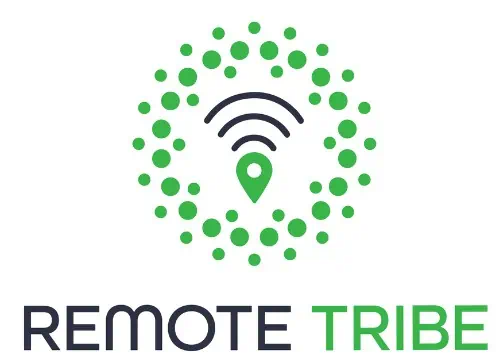
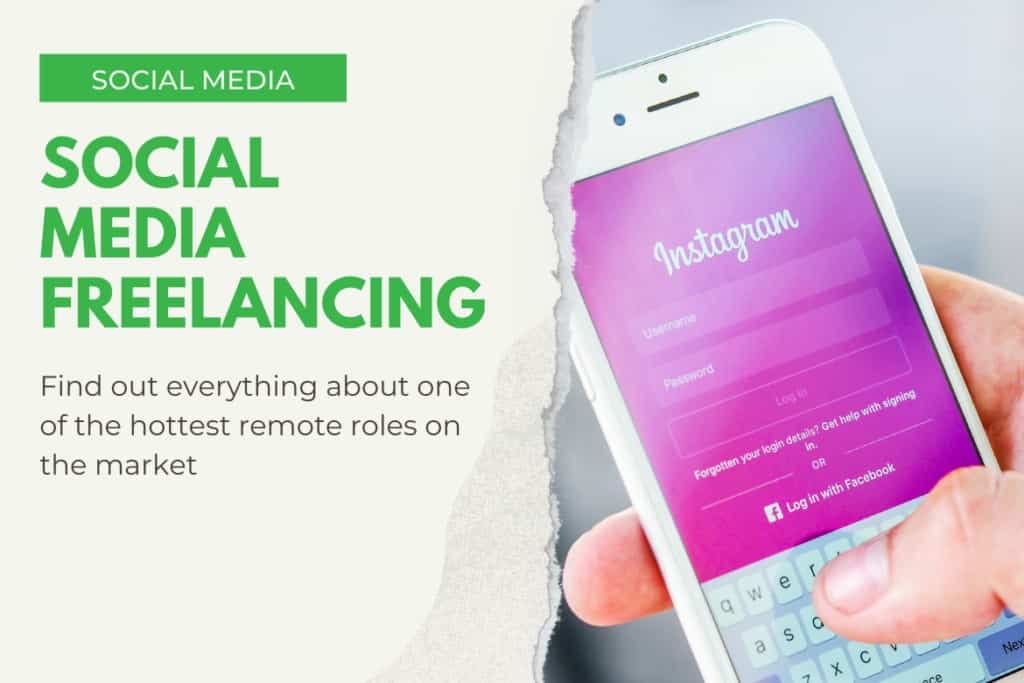


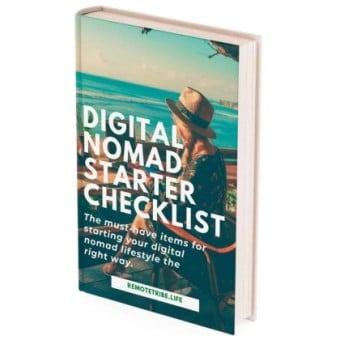
Very well discussed and yes now every job can be remote, which we could have have never thought earlier. A proper setup and few software that are all we need to continue running remote jobs. In my case, I have setup my workstation with few tree plant to get the view of green and using Zoom, Evernote and CloudDesk employee monitoring software to time track my hours and measure my productivity. I am very happy to work from home